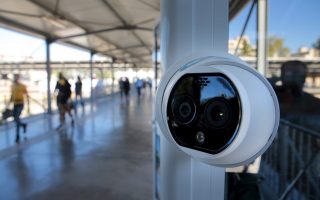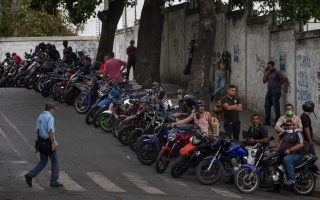Coronavirus: Knowledge sets you free

The coronavirus threat entered our lives quite abruptly, turning our world inside out. Treading this new, unfamiliar, and unchartered territory causes great stress, since we are called upon, practically overnight, to alter our habits and behavior, while feeling vulnerable and unprepared.
The stress response is not only normal in such situations, but it is essential for survival. When sensing danger, all animals mobilize their body and nervous system in an effort to assess the exact threat and respond accordingly, whether by fight or flight. The body recruits all its energy reserves, adrenaline goes through the roof, the heart beats faster, extra blood is pumped to the brain. To put it colloquially, it makes our blood boil. It is also important, however, that this state of alert is not prolonged as it takes a toll on our system, using up all our energy reserves.
To avoid a perpetual state of stress, therefore, we are forced to make decisions regarding the types of threats we encounter every day of our lives. Instinctively and automatically, we make countless calculations about an infinite number of situations we face, ending up with empirical conclusions that reassure us, relieve stress, and allow for peace of mind.
For example, we all know that there are many fatal traffic accidents every day. Despite the statistics, most of us take it for granted that we will make it home safe and sound, as that has been our experience. Consequently, we are not stressed while driving, viewing the risk as negligible. Then there are those who will drive a car but are afraid to fly, considering the risk too high, despite the fact that cold statistics prove otherwise. Empirical risk assessment, behavior adjustment and stress onslaught and resolution are crucial to stress control. While it is essential that we make such calculations and decisions, it does not necessarily follow that we make the correct ones. We decide on an approximation basis, and quite often we miscalculate and end up viewing invisible or remote dangers as nonexistent or lesser than they actually are.
When there is lack of necessary information, as is the case with the new and totally unknown coronavirus threat, our defense mechanisms fill in the gap in an effort to maintain our inner peace. Some deny the existence of the problem altogether, claiming that the virus does not exist. If they become convinced that the virus is a hoax, they also conclude there is no danger and they turn a blind eye to the problem. Many will fall victim to a variety of conspiracy theories. If the virus is the creation of the Nephilim or the Chinese or the devil – as some conspiracy theories pontificate – the unknown virus threat acquires a face and becomes a known quantity. Since experience has shown that we survived the previous intrigues of the devil, chances are we will also survive this one, using the same methods. Thus, naming an instigator of the current malady, no matter how mistaken it is, makes the threat more comprehensible. This absurd reasoning seems to pacify many people and may explain some of the universal popularity of conspiracy theories. Others turn to religion and either seek protection or accept punishment for their sins.
All these absurd scenarios reflect the basic human need to put the world in order and to decide on the level of the threat, with risk management being the ultimate goal. The striking conclusion for me is how easily logic and rationality are discounted in our society. The efforts of many people to understand and manage risk runs contrary to rational behavior. An additional problem is the significant percentage of people with mental health problems in need of medical support who may feed off such conspiracies and irrational interpretations.
The above explains the great demand for information when a new threat appears on the horizon, regardless of whether it is an earthquake or an epidemic. When the risk to each person has been assessed, either rightly or wrongly, the interest in information diminishes. Few remember that millions of people lose their lives to epidemics each year not only in faraway places, but also in our own developed countries to causes that are manageable but have become acceptable through habit. Examples are the yearly flu epidemic and the traffic accidents that happen every day. The peace that comes with superficial risk management is an accomplice to inaction.
The message for those who agonize over the epidemic is that sooner or later they will incorporate the coronavirus threat into their daily routine. While it will require behavior modification, it will ultimately sink in that the huge majority of people will survive the infection and, in a few years, the coronavirus may turn into yet another type of severe “flu” which we will have to face every winter.
In the meantime, we must remember that this is a new virus, causing a variety of severe disease syndromes, which may take the medical profession by surprise. It infects both children and adults, though it prefers the elderly, and can be fatal. Until treatments are found, the only means of protection is to slow down its spread in the population by public health measures.
The optimistic scenario is that society will rapidly find and implement the right countermeasures, as it has done with each new threat. Drugs and immunotherapies that will block the virus are already on the horizon. Therefore, the good news regarding this line of reasoning is that new knowledge and the right actions will set us free us, at least from stress.
George Pavlakis, MD, PhD, is head of the Human Retrovirus Section at the Vaccine Branch of the Center for Cancer Research at the National Cancer Institute.





